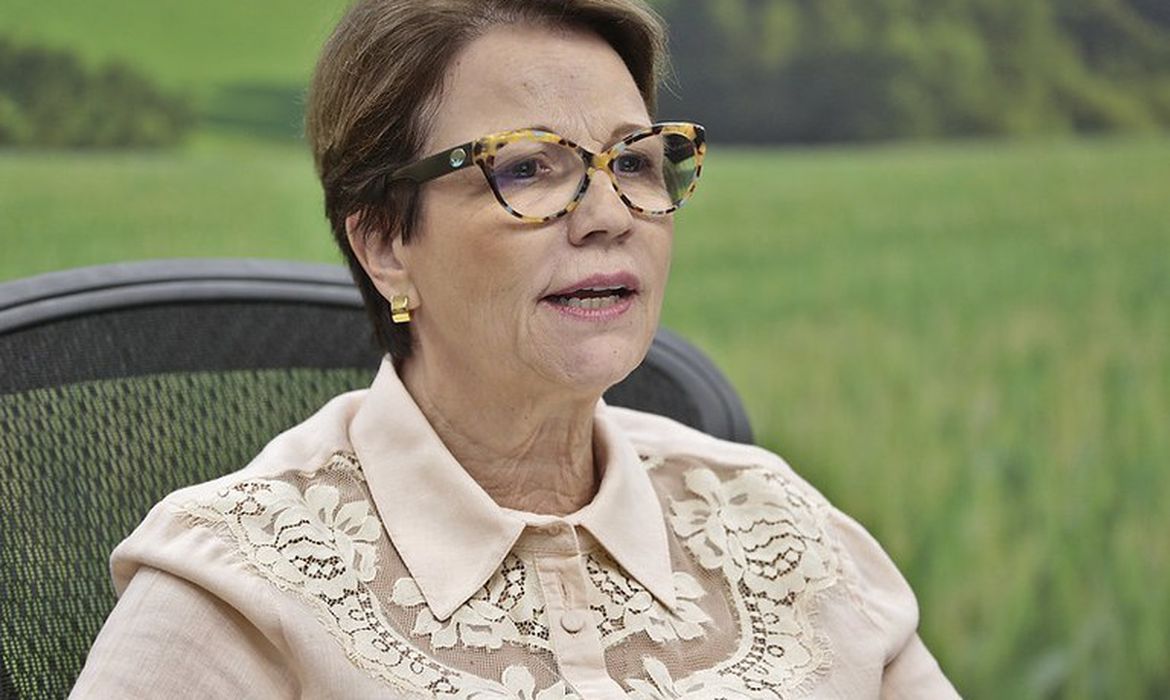RIO DE JANEIRO, BRAZIL – The Minister of Agriculture, Tereza Cristina, said on March 24 in a debate in the Senate that Brazil should not face a shortage of wheat due to the war between Ukraine and Russia but that the skyrocketing price of this commodity will be a problem.
In her speech, the minister evaluated that Brazil is not self-sufficient in wheat production and therefore depends on imports of the product. Russia and Ukraine account for 28.5% of total exports in the world market, but she pointed out that Brazil buys mainly from Argentina, which should avoid a supply problem.
“Our problem is not this. Our problem today is the price because the prices are globalized, of commodities, so the price has already risen exponentially in our wheat market. The effects will be very significant if there is a problem in the production of Russia and Ukraine,” she said.

According to her, the Ministry of Agriculture had already developed a program to increase wheat production in the country and reach self-sufficiency, but this should take “a few years”.
“This program is going very well, Embrapa is producing today excellent varieties of wheat quality and productivity, but we need some time. But we will continue to need the famous fertilizers for this production.”
She pointed out that wheat stocks in the country are “very low.” “If we have to import everything, we will import 6.5 million tons of wheat. Of the foods, it would be the product that we have a greater concern with prices and imports that need to follow their course through our neighboring country, Argentina.”
In addition to wheat, the minister also indicated concern about the supply of fertilizers, a product produced mainly by Russia and Belarus, also involved in the conflict.
“We have a deficiency in Brazil, which is fertilizers. Brazil is the country that plants the most on poor land, so our need is increasing as we increase production.”
She pointed out that Brazil “will have to account for part of the production that will be lacking in the world” due to the war, increasing the demand for fertilizers and putting pressure on the price of these products. Tereza Cristina reinforced that “so far, Brazil has received these fertilizers”.
“We have been following and monitoring through the Ministry of Agriculture the ships that leave and arrive in Brazil with these fertilizers every day. We must receive all these products because our harvest starts in four months. We will have our planting window going on,” she says.
In this sense, she said that the federal government has been carrying out a “fertilizer diplomacy”, trying to keep the supply channels open with countries like Russia, Belarus, and Iran, despite being targets of sanctions that hinder trade.
The minister affirmed that the sanctions against Russia and Belarus “make us very apprehensive”, but that the volumes of imported fertilizers between January and April were not affected, which is “good news for Brazilian agriculture”.
During the debate, Tereza Cristina highlighted the launch of the National Fertilizer Plan, a “strategic action” launched in February of this year to reduce the dependence on imports that, according to her, “year by year has been increasing” in Brazil.
“We are not just reacting to the crisis, we are dealing with a long-term structural problem in Brazil, and we will still need to import fertilizers in 2050. That is one of the conclusions of the national plan, a date that we have defined as the final goal for its conclusion.
The minister reinforced that “we are not aiming at Brazil’s self-sufficiency but at the increase of the domestic production of fertilizers, which must be considered a matter of national security because food security is part of a country’s national security.
She also stated that “today, what does Brazil need to do now? Keep trade flowing. Countries cannot restrict exports; this will increase the world’s food supply and price crisis. We have to respond by planting a good harvest.
With information from CNN Brasil

